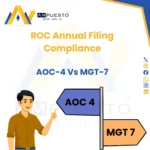Filing Income Tax Returns (ITR) is a crucial annual task for every responsible taxpayer in India. Despite the detailed processes and stringent deadlines, many individuals often overlook or forget to disclose certain crucial details in their ITR. Such omissions can lead to discrepancies, legal issues, or penalties. Here are some of the most common items that clients tend to forget to include in their ITR.
1. Interest Income from Savings Accounts
One of the most frequently overlooked components is the interest earned from savings accounts. While interest up to INR 10,000 is exempt under Section 80TTA, it still needs to be disclosed in the ITR. Many taxpayers forget to mention this income, leading to discrepancies in their declared income.
2. Interest from Fixed Deposits and Recurring Deposits
Unlike savings account interest, the interest earned from Fixed Deposits (FDs) and Recurring Deposits (RDs) is fully taxable. Banks deduct TDS on this interest income if it exceeds INR 40,000 (INR 50,000 for senior citizens) in a financial year. However, individuals often fail to report the full interest income, which can result in notices from the Income Tax Department.
3. Income from Previous Employment
Switching jobs during a financial year is common, but it comes with the responsibility of reporting income from all employers. Employees often forget to report the income earned from their previous job, leading to under-reporting of income and subsequent tax liabilities.
4. Income from Freelance or Part-time Work
In the gig economy, many individuals take up freelance or part-time work. The income earned from these activities is taxable and must be disclosed in the ITR. However, due to the informal nature of such work, taxpayers frequently forget to report this income, which can result in significant discrepancies.
5. Rental Income
Property owners earning rental income must declare this in their ITR. Often, individuals fail to report rental income, especially if the property is rented out on an informal basis. The entire rental income, after permissible deductions, needs to be disclosed.
6. Capital Gains from Investments
Gains from the sale of shares, mutual funds, real estate, and other investments are subject to capital gains tax. Taxpayers frequently forget to disclose these gains, either due to lack of awareness or because they do not maintain adequate records. Both short-term and long-term capital gains must be reported.
7. Income from Investments in Bonds and Debentures
Income from investments in bonds and debentures, including interest and capital gains, is taxable. Taxpayers often overlook this, especially if the investments are long-term and the income is not significant annually. However, all such incomes should be included in the ITR to avoid discrepancies.
8. Gifts Received
Gifts received exceeding INR 50,000 in a financial year are taxable unless they are received from specified relatives or on certain occasions like marriage. Many taxpayers are unaware of this provision and fail to report such income.
9. Clubbing of Income
In cases where income is transferred to a spouse or minor child, it is essential to club this income with the taxpayer’s income. For example, if a spouse earns interest from an investment made by the taxpayer, this income must be clubbed with the taxpayer’s income and disclosed accordingly. Failure to do so can lead to under-reporting of income.
10. Foreign Income and Assets
With increasing globalization, many individuals have foreign income or assets. The Income Tax Act mandates disclosure of all foreign income and assets, including bank accounts, financial interests, and properties. Non-disclosure can lead to severe penalties and legal consequences under the Black Money Act.
11. Agricultural Income
While agricultural income is exempt from tax, it still needs to be disclosed if it exceeds INR 5,000. This is important for computing the tax on non-agricultural income under the progressive tax rate structure. Many taxpayers, especially those with small agricultural incomes, forget this requirement.
12. Deductions Claimed Under Various Sections
Taxpayers often claim deductions under various sections like 80C, 80D, 80G, etc. However, they sometimes forget to provide proof or declare these deductions while filing ITR. Ensuring accurate declaration and documentation of all eligible deductions is essential to avoid discrepancies.
Conclusion
Filing accurate ITR is not only a legal obligation but also ensures peace of mind. Taxpayers should maintain meticulous records and stay updated on tax regulations to avoid omissions. Consulting with a tax professional can provide additional assurance that all income and deductions are correctly reported. Remember, transparency and accuracy in filing ITR not only help avoid legal issues but also contribute to the nation’s growth.









